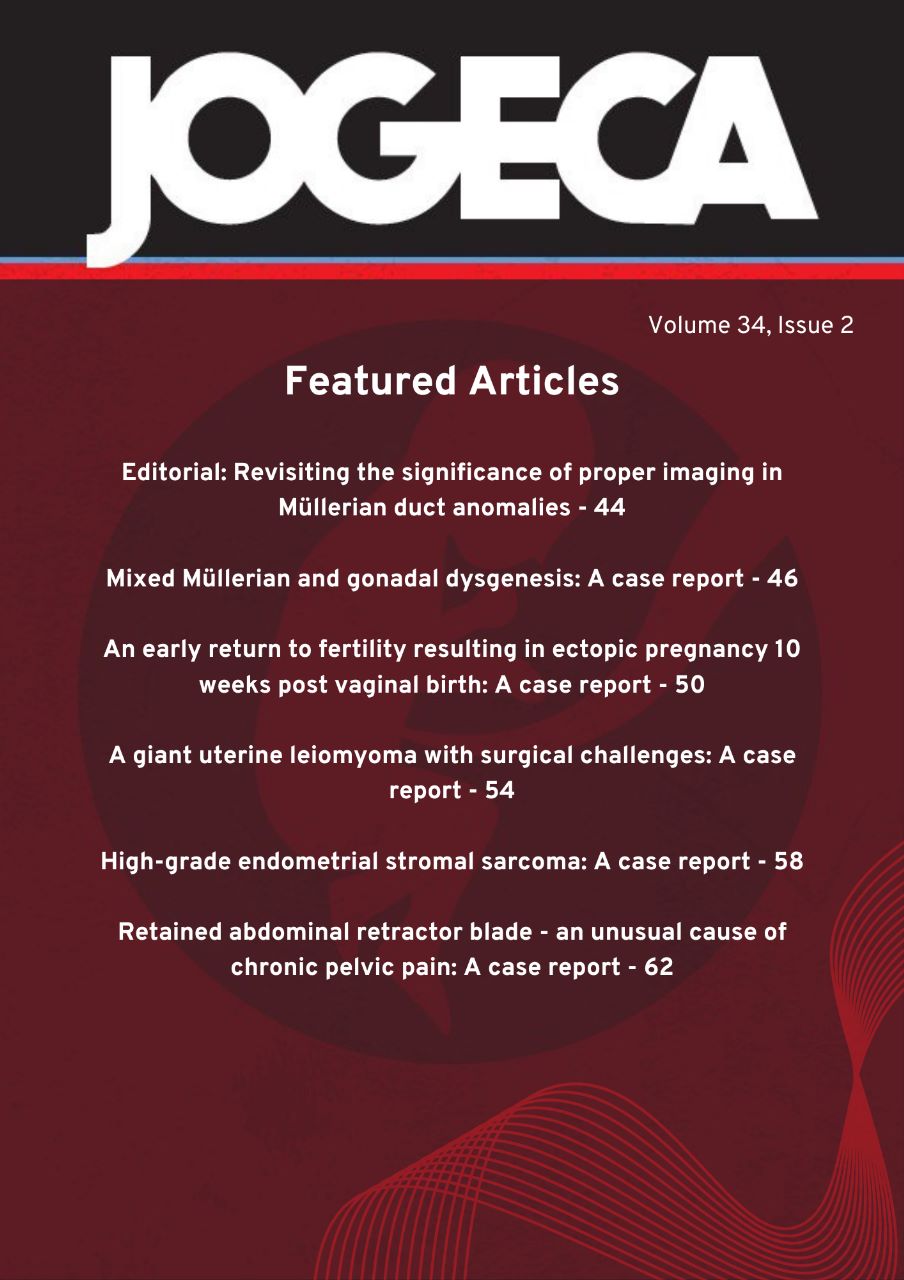Qualitative research to advance social norms initiatives of the RHRA: Mombasa County, HAKI Jamii, and the RHRA Study
DOI:
https://doi.org/10.59692/jogeca.v36i1.159Abstract
Background: In Kenya, there is a general lack of knowledge on the prevention of unintended pregnancies, especially among the rural poor and women living in urban and peri-urban informal settlements. Unsafe abortion is common, and stigma directed at the woman, provider, woman’s family, and facility is common.
Objective: To explore public perceptions of abortion, gather awareness of the legal provisions for abortion, and determine access to information and services.
Methods: Qualitative in-depth research used four focus groups of women and men aged 18-54 years. The interactions were face-to-face and verbatim transcripts. The messages were organized, coded, and categorized into three categories using the delve software. Coding followed a mix of deductive and inductive processes.
Results: There were highly resistant views on abortion across all four groups, focusing mainly on potential complications and death. Emerging voices support termination for rape, defilement, and incest. Abortion occurs more often among married women than among girls. Regarding the legal provisions, safe abortion respondents said it was illegal yet legal. It can be kept secret and influenced by one’s religion. Barriers to safe abortion access included high cost and lack of knowledge of where services are available. However, unintended pregnancies were common in informal settlements, resulting from transactional sex, sex, and gender-based violence, and lack of knowledge of and access to contraception.
Conclusion: There is a need to unpack the collective social silence and the association of abortion with unpleasant social issues and to understand and target the drivers of abortion stigma, including premature death, future fertility concerns, guilt, and the murder label.
Downloads
Published
How to Cite
Issue
Section
Categories
License
Copyright (c) 2024 The Authors.

This work is licensed under a Creative Commons Attribution 4.0 International License.




